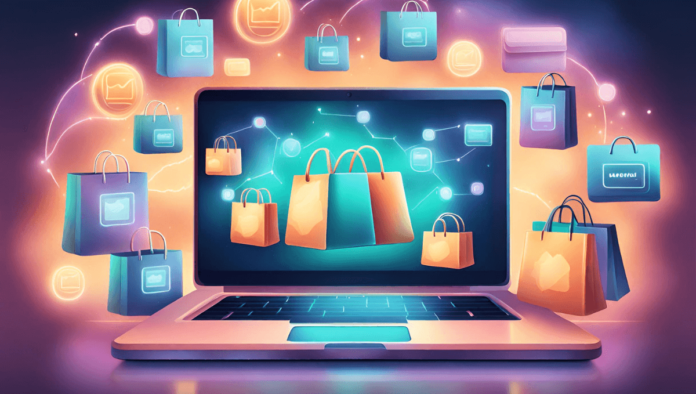Businesses not only have to attract customers but also keep them engaged in a world teeming with alternatives. The real challenge isn’t just drawing customers in; it’s ensuring they stay, making customer retention a critical factor for sustained growth and success. As fleeting loyalty becomes the norm, understanding how to cultivate lasting relationships is more important than ever.
However, achieving enduring customer loyalty is no simple feat. It requires a deep understanding of what drives customers beyond the initial purchase and into a lasting connection with a brand. Businesses are often left navigating a complex web of consumer preferences and behaviors, seeking the elusive formula for loyalty in a constantly evolving market.
In this blog, we’ll explore the dynamics of customer loyalty and retention in the digital age. We’ll uncover the strategies that resonate most with today’s consumers and how businesses can adapt to meet these expectations. Join us as we dissect the challenges and reveal the innovative approaches that can turn one-time buyers into lifelong advocates.
Table of Content:
Table of Content
Understanding Customer Loyalty
Customer loyalty extends beyond repeated purchases. It’s an emotional bond where customers prefer your brand over competitors and recommend it to others. Loyal customers often have a higher lifetime value, as they not only continue to buy but also act as brand ambassadors.
In the transient world of e-commerce, where switching brands is just a click away, fostering this loyalty is both challenging and rewarding. Moreover, understanding the nuances of what drives loyalty in your specific market can make your approach more effective and your customers more satisfied.
Customer loyalty is not just a goal; it’s a critical component of success.
The Impact of CRM on E-commerce Loyalty
CRM systems play a crucial role in understanding and enhancing customer loyalty. They collect and analyze customer data, providing insights into purchasing behaviors, preferences, and patterns.
This intelligence allows businesses to create targeted strategies that resonate on a personal level, making customers feel valued and understood, thereby fostering loyalty. Additionally, CRM helps in identifying at-risk customers, allowing businesses to proactively engage with them and address their concerns, further solidifying the bond.
Personalization in CRM
Personalization is the heart of modern CRM. By leveraging data, businesses can tailor their marketing efforts, recommendations, and customer service to the individual needs and preferences of customers.
Imagine logging onto a website and being greeted by name with suggestions for products you’re interested in; that’s the power of personalization through CRM. This not only improves the customer experience but also significantly boosts the likelihood of repeat purchases and referrals.
Effective Communication Strategies
Effective communication is the bridge between businesses and customers. CRM systems enable targeted communication strategies such as personalized emails, real-time chat support, and engaging social media interactions. By ensuring that communication is timely, relevant, and personal, businesses can significantly enhance customer satisfaction and loyalty.
Furthermore, effective communication fosters a sense of community among customers, making them feel part of a valued group. Consider observing strategies between ERP versus CRM Software to enhance a deeper understanding of this adapt and find out which is the best for you.
Reward Programs and CRM
Reward programs are a tangible expression of a brand’s appreciation for its customers. CRM systems can help manage these programs efficiently, tracking customer purchases, and offering rewards that are both attainable and desirable.
By integrating reward programs with customer data, businesses can ensure that the rewards offered are personalized, enhancing the perceived value and fostering deeper customer loyalty and retention. Additionally, well-managed reward programs can turn occasional buyers into brand advocates, amplifying the effects of loyalty.
Data-Driven Loyalty
Data is the lifeblood of CRM. By analyzing customer data, businesses can identify trends, predict behaviors, and create strategies that preemptively meet customer needs.
This proactive approach not only solves problems before they arise but also demonstrates a commitment to customer satisfaction, a key component of loyalty. With continuous data analysis, businesses can stay ahead of the curve, anticipating customer needs and exceeding expectations.
Challenges and Solutions
Implementing a Customer Relationship Management (CRM) system is a strategic move to enhance customer loyalty but it comes with its share of challenges. From navigating data privacy issues to ensuring seamless system integration and fostering ongoing optimization, each hurdle requires a thoughtful solution below:
Data Privacy Concerns
One of the most noticeable problems is understanding the Data Privacy Concerns. Protecting customer information is crucial. Address this by ensuring your CRM complies with data protection laws, adopting minimal data collection practices, and being transparent with customers about how their information is used. These steps not only safeguard data but also build trust.
System Integration Issues
A CRM that doesn’t mesh with existing systems can lead to inefficiency. Mitigate this by choosing CRM platforms with strong integration capabilities, or invest in custom solutions to ensure seamless operation. Smooth integration equals consistent customer experiences.
Need for Continuous Optimization
A static CRM system can quickly become outdated. Establish regular reviews and updates, encouraging a culture of continuous improvement. Stay responsive to changes in customer behavior, market trends, and technology to keep your CRM strategy effective and relevant.
Enhancing Trust and Loyalty
Use your CRM to genuinely improve customer experiences. Be transparent about data usage, offer personalized interactions, and provide controls for customers over their data. When customers see benefits and maintain control, their trust and loyalty grow.
By proactively addressing these challenges with targeted strategies, your CRM can effectively enhance customer relationships and foster long-term loyalty.
Tips for Implementing CRM
When planning to introduce or enhance CRM systems in your business, a strategic and thoughtful approach is vital. Here’s how you can delve deeper into each tip to ensure a successful CRM implementation:
Clearly Define Your Goals
Before anything else, it’s crucial to have a clear understanding of what you want to achieve with your CRM system. Are you looking to improve customer retention, increase sales, or provide better customer service?
Whatever your goals, they should be specific, measurable, achievable, relevant, and time-bound (SMART). This clarity will not only guide your CRM selection and customization but also help you measure success and return on investment down the line.
Ensure Seamless Integration
Your CRM system should not stand alone but rather integrate smoothly with your existing platforms and software. Whether it’s your marketing automation tools, your sales database, or your customer service software, integration ensures that all customer data is centralized and accessible.
This cohesion allows for a more holistic view of the customer journey, enabling better analysis and more personalized customer interactions. Evaluate how well potential CRM systems play with your current setup and choose one that minimizes disruption and maximizes compatibility.
Invest in Comprehensive Training
A CRM system is only as good as the people using it. To truly leverage the power of CRM, your team must understand not only how to use the system but also why it’s beneficial. Invest in thorough training that covers both the technical aspects of the software and the strategic thinking behind CRM.
Regular training sessions can keep your team updated on new features and best practices, ensuring that everyone is proficient and confident in using the system to enhance customer relationships.
Continually Collect Feedback and Adapt
Implementing a CRM system is not a one-time event but an ongoing process. Regularly collecting feedback from users and customers can provide valuable insights into what’s working and what’s not. Be open to making adjustments based on this feedback.
This might mean customizing certain features, adding new functionalities, or even changing how you approach certain tasks within the CRM. Adaptability is key to ensuring that your CRM system continues to meet the evolving needs of your business and your customers.
Enhancing the customer experience in a way that feels intuitive and genuinely beneficial. By delving deeper into each of these aspects, you can ensure that your CRM implementation is not just a technological upgrade but a significant step forward in your customer relationship strategy.
Conclusion
In the world of e-commerce, customer loyalty is very important for long-term success. Through effective CRM, businesses can understand, communicate with, and provide value to their customers in a personalized and meaningful way.
By investing in CRM and committing to the continuous improvement of customer relationships, businesses can build a loyal customer base that drives growth and success for years to come. In this ever-evolving landscape, those who prioritize their customers through effective CRM strategies will stand out and thrive.
































